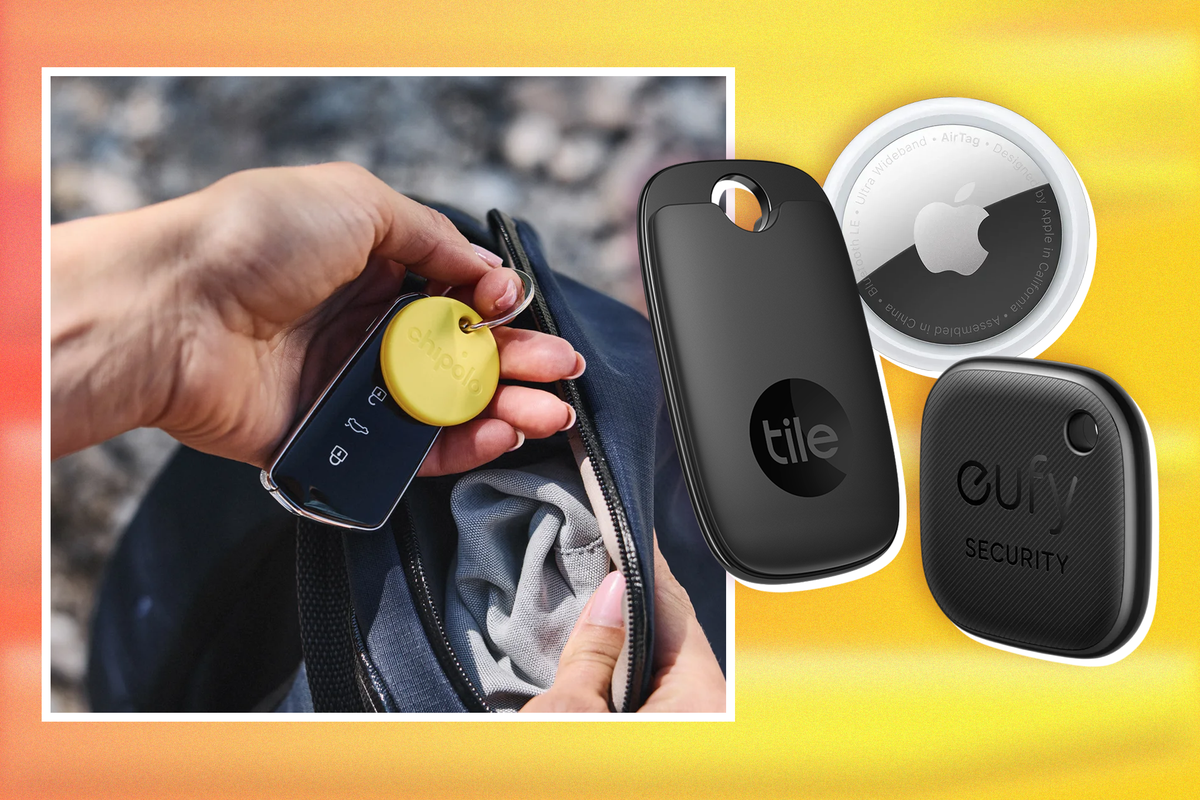Mastering Social Media Selling: Strategies to Boost Your Online Sales

Key Takeaways
- Leverage Diverse Platforms: Utilize major social media platforms like Facebook, Instagram, and Twitter to connect with varied audiences, enhancing brand awareness and driving sales.
- Engaging Content is Key: Create compelling and interactive content, including videos, user-generated content, and stories, to foster customer engagement and build loyalty.
- Adopt a Multichannel Strategy: Implement a cohesive social media strategy that incorporates both paid ads and organic growth tactics to maximize reach and visibility.
- Monitor Analytics: Regularly assess social media analytics to understand audience preferences, optimize content, and improve overall performance.
- Influencer Collaborations: Partner with industry-relevant influencers to expand your reach and credibility, tapping into their audience for enhanced engagement.
- Content Calendar for Consistency: Maintain a content calendar for scheduling posts, ensuring brand consistency and efficient management of your social media presence.
In today’s digital age, social media isn’t just for sharing updates and connecting with friends; it’s become a powerful platform for selling. If you’re looking to boost your sales and reach a wider audience, leveraging social media can be a game-changer. With billions of users worldwide, these platforms offer unique opportunities to showcase your products and engage with potential customers.
Imagine transforming your followers into loyal buyers. By understanding the nuances of social media selling, you can create compelling content that resonates with your audience. From Instagram’s visually-driven approach to Facebook’s targeted advertising, each platform has its strengths. Dive into the world of social media selling and discover how to turn likes and shares into tangible sales.
Overview of Social Media Selling

Social media selling represents a crucial aspect of your marketing strategy, particularly for small businesses. You can utilize platforms like Facebook, Instagram, Twitter, LinkedIn, and TikTok to connect with customers, boost brand awareness, and increase sales. Each platform offers unique features that cater to diverse audiences and business goals.
Creating engaging content is essential. Utilize storytelling techniques to capture attention and convey your brand voice. Incorporate video content and user-generated content to foster community engagement. Instagram Stories and Facebook groups enable direct interaction with your audience, promoting customer feedback and building relationships.
Consider your social media ads strategy. Paid ads on Facebook or Instagram enhance visibility, while organic reach can grow through relevant hashtags and consistent posting. Tailor your social media campaigns to fit each platform’s characteristics, ensuring alignment with your overall content marketing efforts.
Monitor social media analytics to assess your performance. Analysis of engagement rates and customer interactions provides insight into your audience’s preferences. Use this information to optimize your future content creation and improve overall social media growth.
Incorporate a content calendar for scheduling posts. This approach helps maintain brand consistency and improves efficiency in managing your social media presence. Engage with followers and utilize social media tools to streamline your community management efforts.
By leveraging these strategies, you position your small business for success in social media selling, enhancing your online presence and driving sales through meaningful customer connections.
Benefits of Social Media Selling

Social media selling offers vital benefits for small businesses, enhancing growth and visibility in competitive markets.
Increased Brand Awareness
Increased brand awareness stands as a primary benefit of social media selling.
- Global Reach: Social media platforms like Facebook, Instagram, and Twitter provide access to vast audiences, allowing your business to spread brand information quickly. A single social media post can reach millions, significantly enhancing visibility.
- Multichannel Approach: Utilizing multiple social media platforms strengthens your online presence. Each channel serves distinct audiences, directing traffic from social media accounts to your website and improving both quantity and quality of visits.
- Employee Engagement: Engage your team in sharing content. When employees promote your brand on their profiles, they expand your visibility within their networks, enhancing overall brand reach.
Enhanced Customer Engagement
Enhanced customer engagement fosters loyalty and drives sales.
- Interactive Content: Create content that encourages interaction, such as polls, quizzes, and questions. This facilitates meaningful conversations with your audience, improving customer interaction.
- User-Generated Content: Encourage customers to share their experiences with your products. User-generated content boosts authenticity and shows potential customers your product’s real-world use.
- Community Management: Actively manage your online communities through platforms like Facebook Groups and Instagram Stories. Responding to customer feedback builds trust and enhances engagement rates.
- Influencer Partnerships: Collaborate with influencers relevant to your industry. Their endorsement can expand your brand reach and engagement as they connect you with their followers.
Utilizing these aspects of social media selling empowers your small business, driving growth and building a consistent brand voice across platforms.
Key Platforms for Social Media Selling

Social media offers various platforms for small businesses to engage customers and boost sales. Two major platforms are Facebook and Instagram, while Twitter also holds value for effective social media marketing.
Facebook serves as a powerhouse for small business social media selling. With roughly 3.065 billion monthly active users, it provides unmatched reach. As the most utilized platform, 86% of marketers engage with Facebook to connect with potential customers. Direct purchases are high, with 39% of consumers turning to Facebook when ready to buy. To enhance your social media strategy, focus on community management through Facebook groups, and leverage storytelling techniques in your posts. Use social media analytics to refine your approach and maximize your advertising budget. Engaging content, supported by organic reach and paid social ads, increases customer interaction and drives conversions.
Instagram is crucial for building brand awareness and driving sales. Approximately 79% of marketers utilize this platform for its visual nature. Effective Instagram marketing includes high-quality video content and attractive images. Utilize Instagram Stories to enhance engagement and share user-generated content that showcases your products. By integrating relevant hashtags and mastering content creation, you can elevate your online presence. Focus on maintaining brand consistency with your posts, aligning your messaging and visuals to reinforce your brand voice.
Twitter remains influential in social media marketing, especially for real-time engagement. Use it to interact with your audience, respond to customer feedback, and share quick updates about your products or services. Engage actively by participating in social media campaigns and trending topics relevant to your industry. Offer value through informative tweets, and use Twitter analytics to measure engagement rates. Enrich your storytelling with concise, impactful posts to attract followers and enhance your brand visibility.
Strategies for Successful Social Media Selling

Successful social media selling hinges on effective strategies that enhance your presence and connections with potential customers.
Content Creation
Content creation plays a pivotal role in your social media strategy. Focus on producing high-quality, engaging content tailored to each platform. For Facebook, share stories that resonate with your audience, utilizing Facebook groups for community management. On Instagram, prioritize visual storytelling through images and video content to boost brand awareness. Consider incorporating user-generated content to strengthen authenticity and encourage interaction. Utilize Instagram Stories to provide updates and behind-the-scenes glimpses, keeping your audience engaged. For Twitter, share timely insights and information to connect with followers in real time. Consistently updating your content calendar ensures regular posting, maintaining your visibility and relevance.
Influencer Partnerships
Influencer partnerships amplify your online presence and reach. Collaborate with influencers who align with your brand values and target audience. This partnership can enhance your social media campaigns, attracting new followers and driving engagement. Ensure the influencers you choose maintain an engaged audience to maximize your return on investment (ROI). Moreover, encourage influencers to share authentic experiences with your products, generating organic growth through authentic brand testimonials. Utilize these partnerships to tap into their community and expand your brand voice across platforms like TikTok, LinkedIn, and Instagram. Harness their expertise in social media tools to track engagement rates and adjust strategies accordingly for optimal results.
Challenges of Social Media Selling

Social media selling presents various challenges that small businesses must navigate to achieve success. Understanding and addressing these hurdles can lead to effective social media strategies and improved engagement.
Creating Engaging and Relevant Content
Producing content that resonates with your target audience remains a primary challenge. Your content must meet evolving social media trends and platform standards. Marketers often struggle to maintain high-quality standards across different social media platforms.
Solutions:
- Use social listening tools to monitor discussions around your brand, products, or industry.
- Develop detailed buyer personas to tailor content, ensuring it addresses your audience’s needs and interests.
- Collaborate with creators or brand advocates to learn successful engagement strategies.
Reaching the Target Audience
Ensuring that your content reaches the right audience poses another significant challenge. It’s crucial to optimize your social media posts and ads for audience targeting.
Solutions:
- Implement paid social campaigns using detailed targeting options on platforms like Facebook and Instagram to reach potential customers.
- Utilize organic growth strategies by sharing content relevant to your audience’s interests, enhancing your brand’s visibility.
- Schedule posts during peak engagement times to maximize visibility and effectiveness of social media posts.
Maintaining Brand Consistency and Voice
Maintaining brand consistency across different platforms can be difficult. Your messaging and tone must align with your overall brand voice, regardless of which social media platform you use.
Solutions:
- Establish a content calendar to plan and create content that maintains uniformity.
- Use storytelling techniques to convey your brand message, ensuring it resonates across various platforms.
- Regularly review and adjust your social media strategy to stay in sync with platform nuances and audience preferences.
Monitoring Social Media Analytics
Tracking performance and engagement rate is essential for optimizing your social media campaigns. Often, small businesses overlook social media analytics, limiting their growth potential.
Solutions:
- Regularly analyze social media analytics to measure engagement and optimize content accordingly.
- Track customer feedback and reviews to understand audience perceptions and improve content strategies.
- Adjust your social media ads based on performance metrics to enhance ROI and reach.
Staying Updated on Social Media Trends
The rapid evolution of social media platforms brings new challenges. Keeping up with trends is vital for effective social media marketing.
Solutions:
- Follow industry influencers and thought leaders to stay informed on trends affecting your sector.
- Experiment with new features, such as Instagram Stories and Facebook groups, to engage effectively with your audience.
- Use relevant hashtags to enhance content visibility and join trending conversations within your industry.
By actively addressing these challenges, you position your small business for success in social media selling.
Conclusion

Embracing social media selling can transform the way you connect with customers and grow your business. By leveraging the unique strengths of each platform you can create engaging content that resonates with your audience. This approach not only boosts brand awareness but also fosters community engagement and loyalty.
As you navigate the challenges of social media selling remember that consistency and creativity are key. Utilize analytics to refine your strategies and stay ahead of trends. With the right tactics your small business can thrive in the competitive landscape of social media, turning followers into loyal customers and driving sustainable growth.
Frequently Asked Questions

What is social media selling?
Social media selling is the practice of using social media platforms to promote and sell products or services. It leverages the vast audiences of these platforms to increase brand visibility, engage customers, and drive sales through tailored content and targeted advertising.
How can small businesses benefit from social media selling?
Small businesses can increase brand awareness, reach a global audience, and enhance customer engagement through social media selling. By implementing effective strategies, they can boost visibility and drive sales while also building a consistent brand voice across multiple channels.
Which social media platforms are best for selling products?
Facebook, Instagram, Twitter, LinkedIn, and TikTok are effective platforms for selling products. Each has unique features that cater to different audiences, making it essential for businesses to choose the right platform for their target demographic.
What strategies should businesses use for social media selling?
Businesses should create engaging content, utilize storytelling techniques, incorporate video and user-generated content, and foster community engagement. Additionally, a well-planned social media ads strategy and consistent posting schedule are vital for success.
How important is content quality in social media selling?
High-quality content is crucial for capturing attention and engaging your audience. Tailoring content to each platform improves viewer interaction and can lead to higher conversion rates. Engaging visuals, compelling stories, and user-generated content drive effective selling.
Should businesses collaborate with influencers?
Yes, collaborating with influencers can significantly broaden a brand’s reach and enhance credibility. Influencers can promote products to their followers, resulting in new customer acquisition and increased engagement, especially when they align with the brand’s values.
How can businesses measure success in social media selling?
Success can be measured by monitoring analytics and key performance indicators (KPIs) such as engagement rates, conversion rates, and customer feedback. Regularly analyzing these metrics helps refine strategies and improve future campaigns.
What challenges do small businesses face in social media selling?
Common challenges include creating engaging content, reaching the target audience, maintaining brand consistency, and staying updated on trends. Addressing these issues through social listening tools, content calendars, and industry insights can enhance effectiveness.
How can businesses ensure consistent social media posting?
Establishing a content calendar is essential for consistent posting. Planning ahead allows businesses to schedule posts, align content with marketing goals, and ensure a steady flow of engaging material to maintain audience interest.
What role does community management play in social media selling?
Community management fosters engagement and relationships with customers. By actively managing online communities, responding to inquiries, and encouraging user interaction, businesses can build loyalty and create a positive brand presence on social media.
Image Via Envato
This article, "Mastering Social Media Selling: Strategies to Boost Your Online Sales" was first published on Small Business Trends
What's Your Reaction?
 Like
0
Like
0
 Dislike
0
Dislike
0
 Love
0
Love
0
 Funny
0
Funny
0
 Angry
0
Angry
0
 Sad
0
Sad
0
 Wow
0
Wow
0






























































































